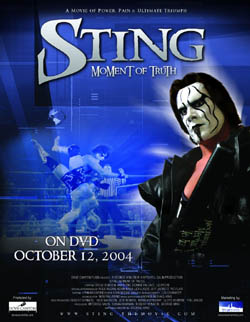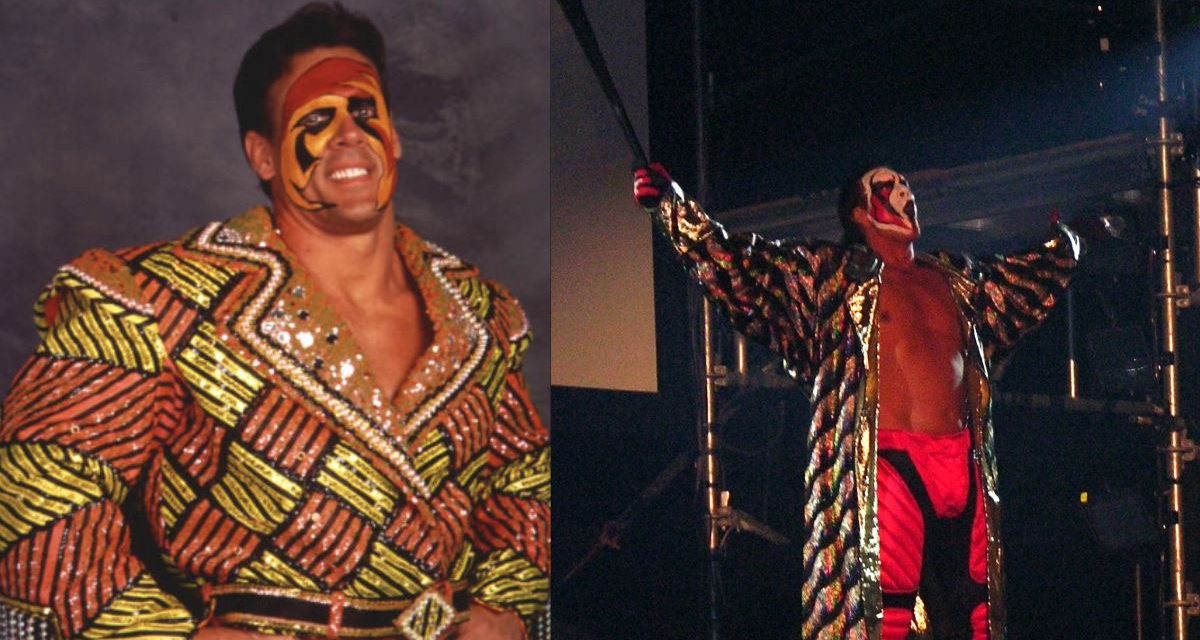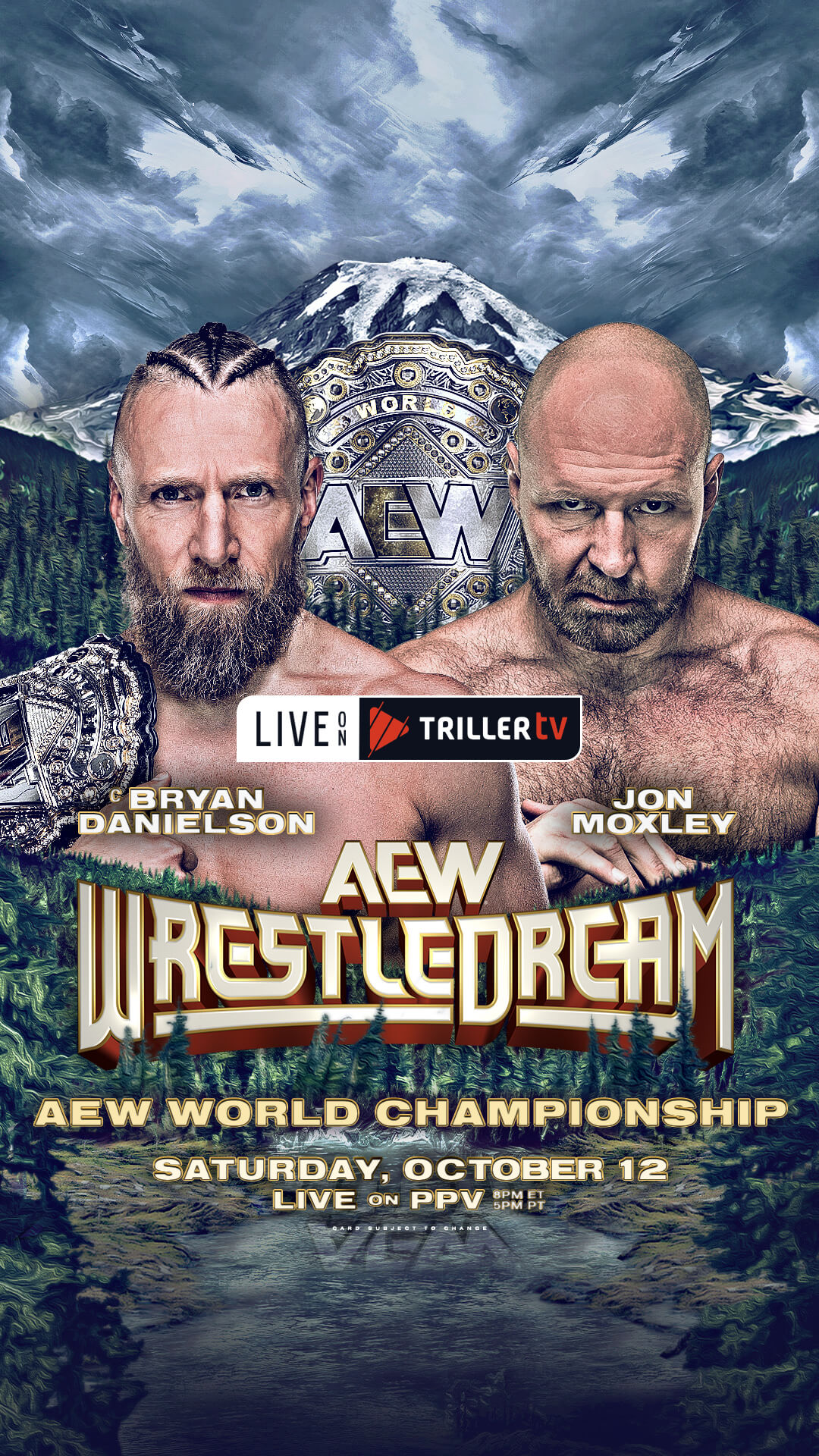It is a testament to Sting (AKA: Steve Borden) that even though he hasn’t been at the forefront of the professional wrestling business since the axe fell on WCW, he is still one of the most talked about figures in the history of pro wrestling.
One of the only WCW icons who hasn’t succumbed to the siren call of Vince McMahon’s crumbling WWE empire — and based on how the WWE treated and portrayed Hogan, Goldberg, the NwO and other ex-WCW and ECW talent, that’s probably a good thing — there is no doubt that Sting’s pro-wrestling legacy is strong enough to sustain his absence from the scene. That in itself is an extraordinary achievement.
Much like Hulk Hogan and Ric Flair, Sting’s personality and energy shaped him into a larger-than-life figure in WCW. Borden’s strong, energetic work rate and his infectious charisma shaped the Sting persona into a wrestling superhero who always fought the good fight and worked hard in the ring even against worthless broom sticks like Kevin Nash. Sting had that certain, intangible “coolness” that made him so popular with fans. It is a quality that can’t be taught in any wrestling school. You either got it or you don’t.

As we learn in Sting: The Moment Of Truth though, Steve Borden wasn’t a big fan of the travel schedule that comes with being a professional wrestler or even the fame the Sting persona brought him. It took a huge toll on his spirit and his personal life as a husband and a father. A wrestler’s nomadic lifestyle sure doesn’t make it easy for those who strive to be good family men or women. Sting: The Moment Of Truth, a feature film by writer and director George King, explores Steve Borden’s life and his decision to change the course of it.
The sad part is when the end credits roll even the most casual wrestling fan knows no more about Steve Borden than they did at the start. With all the complexity of a children’s pop-up book, the plot is about as thin as Paris Hilton. A fleeting, forgettable peep rather than an intimate glimpse into Borden’s life, one has to truly wonder if all King did in the developmental stage was trade a couple of brief emails with Borden before he scribbled the script down on a couple of napkins while eating lunch at Hardee’s.
Substituting for inconsequential movie staples like dialogue, scenes or a coherent plot are numerous tedious music videos, which devour the films’ running time. Methinks director/writer King should have went all the way and made entire Sting: The Moment Of Truth into a musical. He might as well have based on how much of the picture is devoted to the sequences. Any way, seeing The Ultimate Warrior sing The Impossible Dream would have been worth the rental fee alone.
When you factor in the wrestling matches staged just for the film too — there is a good one featuring Sting taking on Jeff Jarrett — the already lean story line becomes completely anemic. Sting’s infamous ‘White Castle Of Fear’ promo in WCW had more substance than the entire Sting: The Moment Of Truth movie … and it had an evil midget too. You gotta like evil midgets.
In what few scenes they do have, the primary cast — Steve Borden (as himself), Donnie Falcate (as Borden in the bio segments) and Liz Byler (as Sting’s wife, Sue Borden) — do an adequate job of taking us through Sting’s early days although Byler’s primary job is just to stand there and look pretty during the sleepy music video segments. Though she is a key figure in Sting’s life, it is quite surprising that the extent Sue’s character development is a kiss-off letter she writes to him while he is on the road. That’s it. That’s all.
Of course the true focus of Sting: The Moment Of Truth, is how becoming a Born Again Christian transformed Steve Borden. To their credit, director/writer King and Borden are pretty sensitive and don’t get too preachy. There is no Bible thumping here. The scenes in which Borden pleads with God for help are a bit over the top but they work well within the context of the film.
In some of the movie’s only engaging moments (when the music videos aren’t droning on and on) it is curious to see how Borden shied away from religion at first and was embarrassed to admit his faith. During one such scene, Sting lies to a reporter about the small cross he carried in his trench coat during his WCW matches. If such a theme was expanded like in Ted Dibiase’s insightful book of a few years back, the film-makers might have hit upon something quite fascinating but like everything else in Sting: The Moment Of Truth, they barely go beyond the blatantly obvious.
Sting is definitely an interesting personality that most fans would love to learn more about. It seems however, that such a story would be best told in book format (which is forthcoming). The themes, especially the religious ones, are best told in Borden’s own words without ridiculous music videos to get in the way or to demean the seriousness and the sincerity of his message.
Despite all its good intentions, Sting: The Moment Of Truth has no depth, no soul and more importantly, no evil midgets. You gotta like evil midgets.
RELATED LINK


